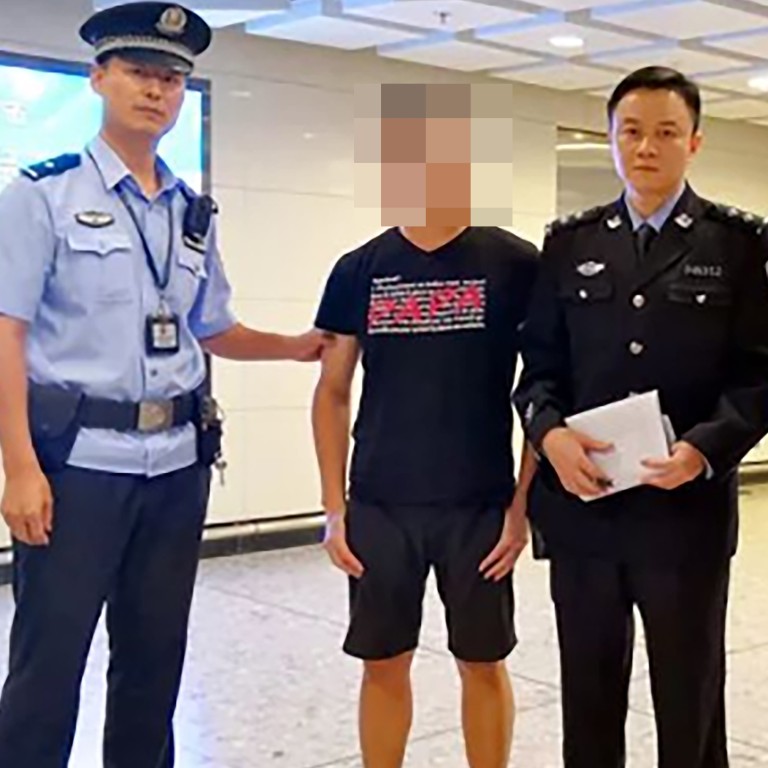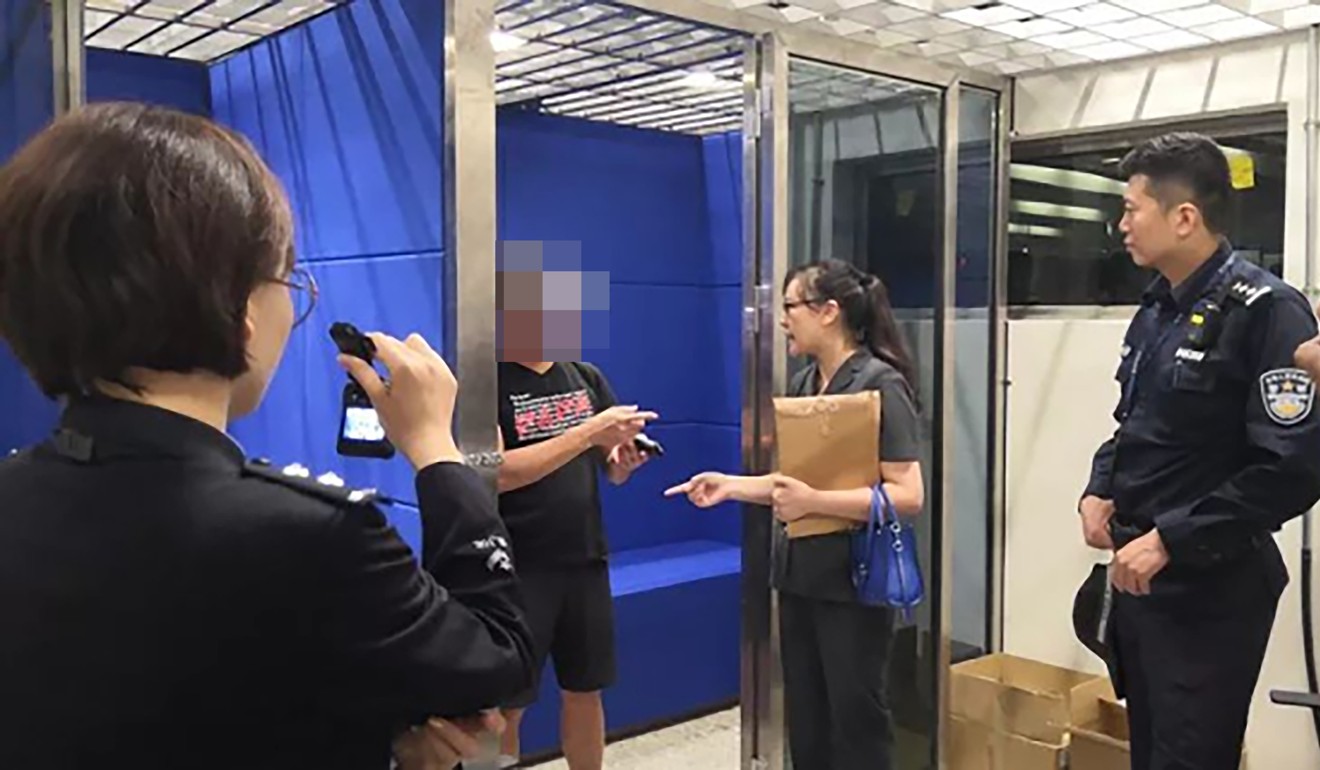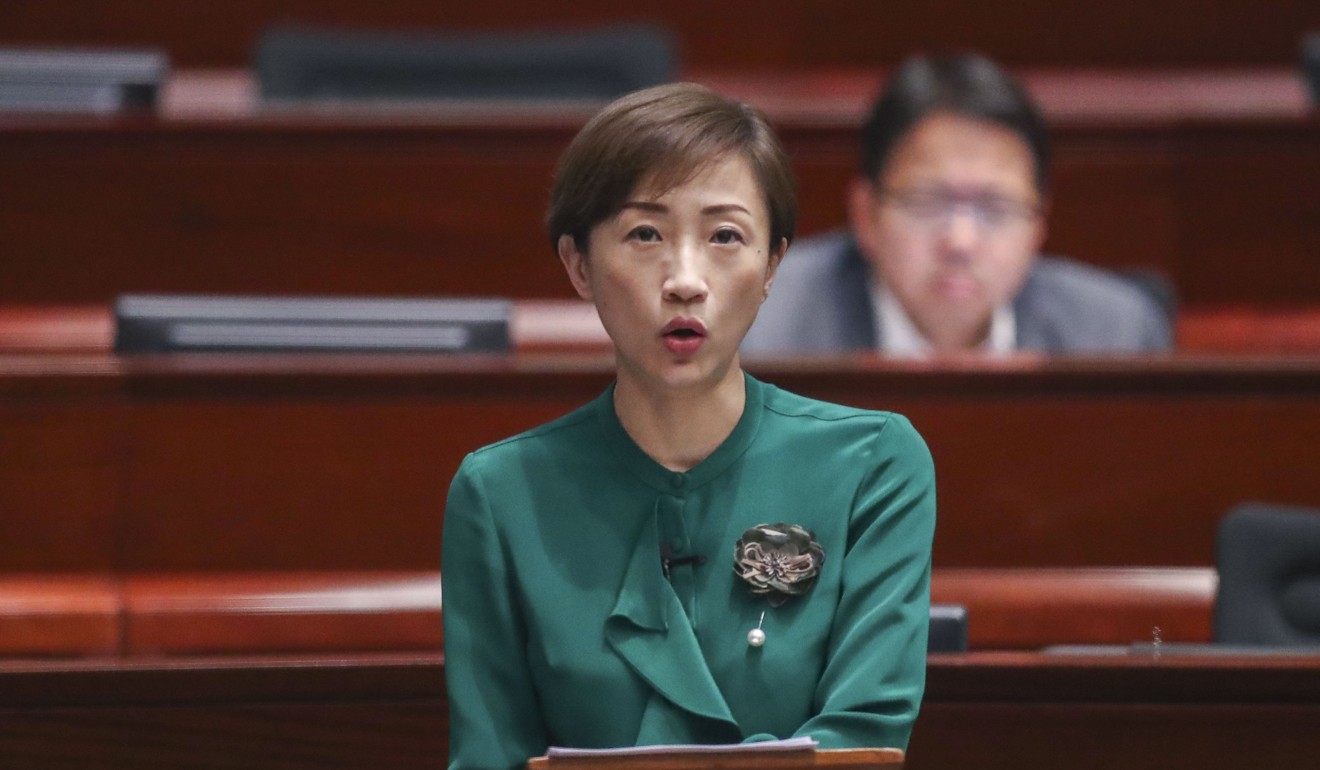
Mainland Chinese law enforcers reportedly took away two travellers from high-speed rail terminal in Hong Kong – but did they tell local officials?
- Asked if it was told about the two cases, the Security Bureau would only say mainland officers had the judicial power to take such action
Mainland Chinese law enforcers have reportedly taken away at least two travellers, including a Hong Kong resident, from the West Kowloon terminus since the cross-border express rail came into operation in September.
The revelations raised concerns about whether the Hong Kong government was told about the incidents and why the Hongkonger’s case was not made public sooner.

Asked whether it was told about the two cases, the Security Bureau would only say that the mainland officers had the judicial power to take such action.
According to Guangzhou-based Southern Metropolis Daily, the latest case occurred three weeks ago, on December 13.
Heavily armed anti-terror squad to cover Hong Kong’s railways from Sunday
Its report on Friday said a customs officer at the terminus called Longgang District Court in Shenzhen to say they had “stopped and detained” a person surnamed Zou, who was not allowed to leave mainland China for failing to comply with a court order.
A judge and bailiff, who travelled to West Kowloon by high-speed train, later took Zou back to Shenzhen.
The report did not specify if the actions took place in the mainland port area.
The earlier case occurred on October 27, when immigration officers in the mainland port area told Nanshan District Court, also in Shenzhen, at around 5.30pm that they had found a Hong Kong permanent resident who had failed to comply with its order for more than two years.
A report by Nanfang Daily four days after the incident said the court in 2015 had ordered the Hongkonger, surnamed Lung, to return 1 million yuan (US$145,450) to a former buyer of his house in a ruling over a dispute.
Mainland officers can operate in Hong Kong station, court rules
The report said court officials arrived at the terminus by train in under three hours to detain Lung.
Photos with the report showed officers questioning Lung in one of two glass cubicles at the terminus.
“I could enter and leave the mainland freely last week. Why am I now restricted? This is Hong Kong. On what ground can you restrict my movement here?” Lung was quoted in the report as saying.
The official said they could take action according to the Nanshan court verdict and that they were in the mainland port area.
Lung was taken to court and released after settling the payment that evening.
Under the co-location agreement, the mainland port area includes immigration counters on floors serving departures and arrivals, station platforms and compartments of moving trains in Hong Kong.
Regina Ip Lau Suk-yee, former security minister and chairwoman of the Legislative Council’s subcommittee on the co-location ordinance, said that while officials from across the border should be able to discharge their duties in the mainland port area, Hong Kong should be informed if local residents were involved.
Has West Kowloon joint checkpoint case opened an ‘even larger loophole’?
Lawmaker Horace Cheung Kwok-kwan of the Democratic Alliance for the Betterment and Progress of Hong Kong said the reported actions by mainland officials showed that the co-location arrangement had been functioning well to protect the city from criminals seeking to enter.
But legal sector lawmaker Dennis Kwok Wing-hang said the latest incident showed why the public had no confidence in the co-location arrangement.

“Our stance has always been that the central government should not exercise legal jurisdiction in the city according to the Basic Law,” Kwok said.
Civic Party lawmaker Tanya Chan questioned whether the government was told about the incidents, adding that such cases especially ones that involved a Hongkonger, should be made public promptly.
“These incidents show that Hong Kong people have been kept in the dark and the Hong Kong government doesn’t care to inquire. They exactly demonstrate how the co-location arrangement ‘cedes land’ from Hong Kong to the mainland authorities,” she said.
The MTR Corp declined to comment.


